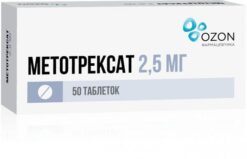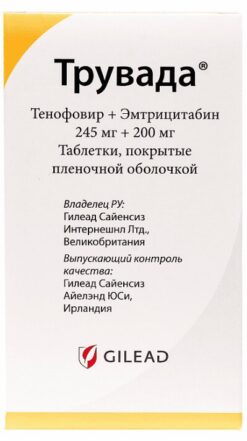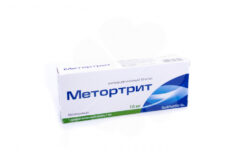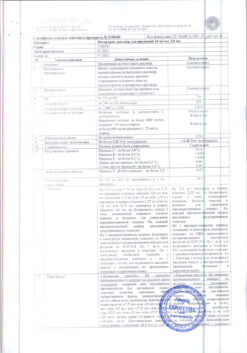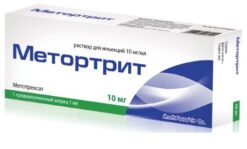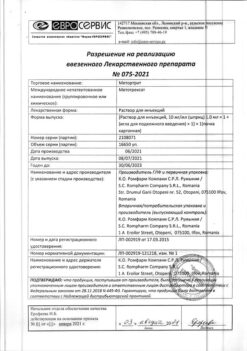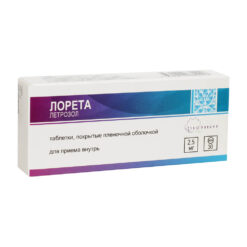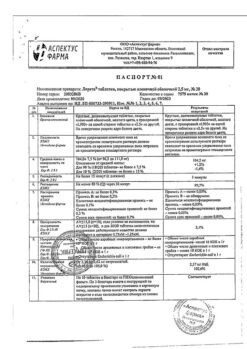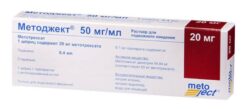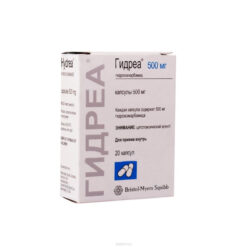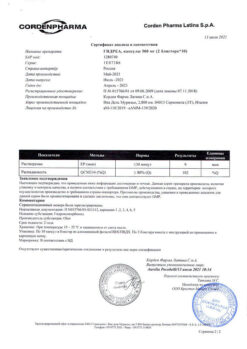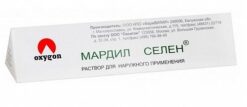No products in the cart.
Description
Irinotecan is a semi-synthetic derivative of camptothecin, a specific inhibitor of the cellular enzyme topoisomerase I. In tissues the drug is metabolized to form the active metabolite SN-38, which is more active than irinotecan.
Irinotecan and SN-38 stabilize the complex of topoisomerase I with DNA, which prevents replication of the latter.
Pharmacokinetics
The pharmacokinetic profile of irinotecan is not dose dependent. Maximum plasma concentrations of irinotecan and SN-38 were reached by the end of the intravenous infusion at the recommended dose of 350 mg/m2.
The plasma protein binding of irinotecan is approximately 65%, for its active metabolite – SN-38 – 95%. Distribution of the drug in plasma is two- or three-phase. It is metabolized mainly in the liver under the action of carboxylesterase enzyme to the active metabolite – SN-38.
The average T1/2 of the drug in the first phase is 12 min, in the second phase – 2.5 h and in the last phase – 14.2 h. It is excreted in the urine within 24 hours as unchanged drug (20%) and as SN-38 (0.25%).
In bile about 30% of the drug is excreted both as unchanged and as SN-38 glucuronide. 5-fluorouracil and calcium folinate do not affect the pharmacokinetics of irinotecan.
Indications
Indications
Locally advanced or metastatic colorectal cancer: as monotherapy in patients with disease progression after conventional treatment; in combination with 5-fluorouracil and calcium folinate in patients who have not previously received chemotherapy.
Active ingredient
Active ingredient
Composition
Composition
Active ingredient:
Irinotecan hydrochloride trihydrate;
Associates:
D-sorbitol,
lactic acid,
sodium hydroxide,
water d/s.
How to take, the dosage
How to take, the dosage
The drug is administered in adults only. Irithin is administered as an IV infusion lasting at least 30 minutes and no longer than 90 minutes. In colorectal cancer Irithin is used both as monotherapy and in combination with 5-fluorouracil and calcium folinate. When choosing a dose and mode of administration it is necessary to refer to special literature. In monotherapy Iriten is used in a dose of 350 mg/m2 of body surface every 3 weeks.
In combination therapy with continuous infusion of 5-fluorouracil and calcium folinate Iriten is administered weekly in a dose of 80 mg/m2; once every 2 weeks – 180 mg/m2; when administered in combination with a bolus of 5-fluorouracil and calcium folinate weekly – 125 mg/m2. Iriten should not be administered until the neutrophil count in peripheral blood exceeds 1500 cells/μL and until complications such as nausea, vomiting, and especially diarrhea have completely resolved. Administration of the drug until all side effects are resolved can be postponed for 1-2 weeks. If marked suppression of medullary hematopoiesis develops during treatment (neutrophil count is less than 500/μL, and/or leukocyte count is less than 1000/μL, and/or platelet count is less than 100,000/μL), or febrile neutropenia (neutrophil count of 1,000/µL or less combined with fever greater than 38°C), or infectious complications, or severe diarrhea, or other non-hematologic toxicity of grade 3-4, subsequent doses of Iriten or if necessary 5-fluorouracil are reduced by 15-20%.
Iriten treatment is continued until objective signs of tumor disease progression or development of unacceptable toxic manifestations appear. Patients with liver dysfunction with bilirubin level in serum which is not more than 1.5 times higher than IUF, due to increased risk of development of expressed neutropenia should carefully control peripheral blood values. If bilirubin level exceeds 1.5 times BBN, treatment with Iriten should be discontinued.
Patients with impaired renal function should not be treated with Iriten, since the drug use in this category of patients has not been studied. There are no special instructions for use of Iriten in elderly patients. The drug dose should be selected with caution in each case. Safety and effectiveness of Iritin use in children have not been studied sufficiently.
Regulations for preparation of solution for intravenous infusion Iritin solution must be prepared under aseptic conditions. The required quantity of the drug is diluted in 250 ml of 5% dextrose solution or 0.9% sodium chloride solution and the resulting solution is stirred by rotating the container or vial. Before injection the solution should be visually inspected for transparency.
If a precipitate is found, the drug must be destroyed. Iriten solution must be used immediately after dilution. If the dilution is done in an aseptic manner (e.g., in a laminar airflow unit), Iritin solution can be used when stored at room temperature for 12 h (including infusion time) and when stored at 2° to 8° C for 24 h after opening the vial of concentrate.
Interaction
Interaction
Because Iriten has anticholinesterase activity, there may be an increase in the duration of neuromuscular blockade when combined with suxamethonium and an antagonistic interaction regarding neuromuscular blockade when combined with nondepolarizing myorelaxants.
Pharmaceutical interactions
Iriten should not be mixed with other drugs in the same bottle.
Special Instructions
Special Instructions
The treatment with Iriten should be carried out in specialized chemotherapy departments under the supervision of a physician experienced in working with antitumor drugs. Patients receiving Iriten should have a weekly gross clinical blood count and monitor liver function.
Diarrhea resulting from cytotoxic action of the drug (delayed diarrhea) usually occurs not earlier than 24 hours after administration of Iriten (on average 5 days in most patients). In case of the first episode of liquid stools it is necessary to administer abundant drinking containing electrolytes and immediate anti-diarrheal therapy, including high doses of loperamide (4 mg at first administration and then 2 mg every 2 hours).
This therapy is continued for at least 12 hours after the last episode of liquid stool, but no longer than 48 hours because of the possibility of small-bowel paresis. If the diarrhea is considered severe (more than 6 episodes of liquid stools during 24 hours or marked tenesmus), or if accompanied by vomiting or fever, the patient should be transferred to a hospital urgently for complex treatment, including administration of a broad spectrum of antibiotics.
In case of moderate or mild diarrhea (less than 6 episodes of liquid stools during 24 hours and moderate tenesmus) that does not relieve within the first 48 hours, oral antibiotics of broad spectrum should be started, and the patient should be hospitalized.
In case of concurrent diarrhea and marked neutropenia (leukocyte count is less than 500/μL), broad-spectrum antibiotics are prescribed orally in addition to antidiarrheal therapy for prophylactic purposes. Loperamide should not be administered prophylactically, including in patients who had diarrhea during previous administration of Irithin. Patients should be warned in advance about the possibility of delayed diarrhea.
Patients should tell their physician right away if diarrhea occurs and begin appropriate treatment immediately. If diarrhea is not adequately treated, it can lead to a life-threatening condition, particularly if there is a background of neutropenia. Patients with febrile neutropenia (body temperature >38°C and neutrophil count less than 1000/μl) should be started without delay with broad spectrum antibiotics in a hospital setting. In the development of acute cholinergic syndrome in the absence of contraindications 0.25 mg atropine sulfate p/k should be administered. Caution should be exercised when using the drug in patients with bronchial asthma.
In patients with signs in the anamnesis of acute cholinergic syndrome, including a severe form, a prophylactic prescription of antiemetics is recommended before administration of Iritin. Since the dosage form of the drug contains D-sorbitol as an excipient, Iriten should not be used in patients with hereditary fructose intolerance.
When preparing Iriten solution and handling the drug it is necessary to be careful. Gloves, mask and goggles should be used. If Iritin solution or infusion solution comes into contact with skin or mucous membranes, the skin should be washed immediately with soap and water, mucous membranes with just water.
Influence on driving and operating machinery
Patients should be warned about the possibility of dizziness and visual disturbances during treatment with Iriten, which develop within 24 hours after administration of the drug. If these symptoms occur, patients are advised to refrain from driving or operating other machinery.
Contraindications
Contraindications
– chronic inflammatory bowel disease and/or intestinal permeability disorders;
– marked suppression of bone marrow hematopoiesis;
– serum bilirubin level exceeding IAH by more than 1.5 times;
– patients’ general condition as assessed by the WHO>2 scale;
– pregnancy;
– period of lactation (breastfeeding);
– hypersensitivity to irinotecan or other components of the drug.
The drug should be used with caution in case of radiotherapy (in anamnesis) on the abdomen or pelvis, leukocytosis, female patients (increased risk of diarrhea).
Side effects
Side effects
Hematopoietic organs: neutropenia is observed in an average of 80% of patients, including half of them with a decrease in neutrophils to
Digestive system disorders: late diarrhea occurring more than 24 h (5 days on average) after administration is a dose-limiting toxic manifestation and is observed in approximately 87% of patients, of which 38% are severe.
Nausea and vomiting usually occur on the first day of administration or 24 h later in 85% of patients. The development of dehydration against the background of vomiting and diarrhea has been reported, very rarely with the development of renal failure, hypotension and heart failure. Abdominal pain, anorexia, mucositis, constipation are possible.
Acute cholinergic syndrome is seen in 9% of patients within the first 24 h after administration of Iriten and is manifested by diarrhea, abdominal pain, increased sweating, miosis, visual disturbances, lacrimation, salivation, decreased BP, dizziness, chills and general malaise.
CNS disorders: involuntary muscle twitching or convulsions, paraesthesia, asthenia.
Allergic reactions: rare – skin rash and very rare – the development of anaphylactic shock.
Other: shortness of breath, alopecia, increased body temperature, local reactions.
Overdose
Overdose
As Iriten has anticholinesterase activity, the duration of neuromuscular blockade may be increased when combined with suxamethonium and antagonistic interaction with respect to neuromuscular blockade when combined with nondepolarizing myorelaxants.
Pharmaceutical interaction Iriten should not be mixed with other drugs in the same bottle.
Pregnancy use
Pregnancy use
The drug is contraindicated in pregnancy and during lactation (breast-feeding).
Trustworthy contraceptive measures should be used during treatment with the drug Iriten and for at least 3 months after discontinuation of therapy.
Additional information
| Shelf life | 2 years |
|---|---|
| Conditions of storage | In a light-protected place at a temperature not exceeding 25 °C. |
| Manufacturer | Lance Farm, Russia |
| Medication form | solution for infusion |
| Brand | Lance Farm |
Related products
Buy Iriten, 40 mg, 2 ml with delivery to USA, UK, Europe and over 120 other countries.


